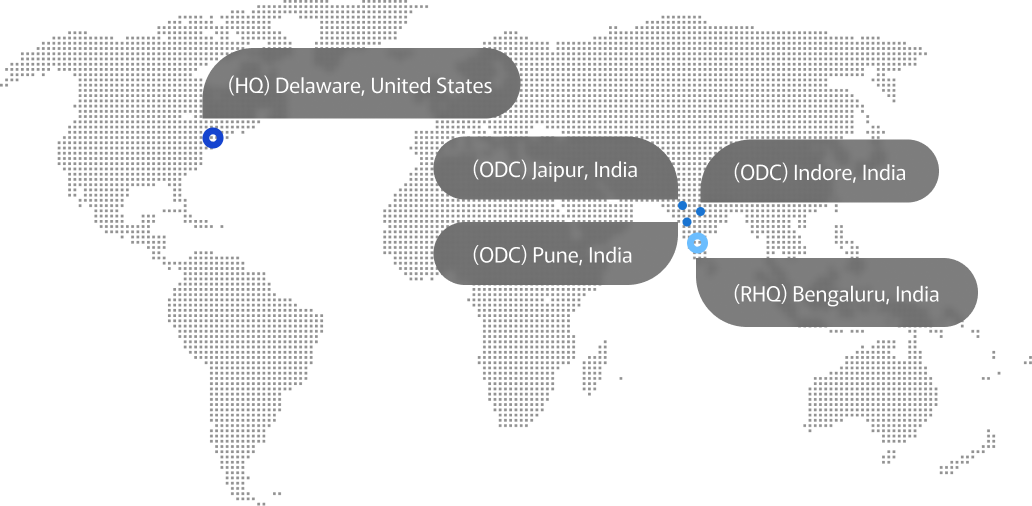
- Flutter Libraries
Best Flutter Libraries for 2024: A Developer’s Must-Have Toolkit
In mobile app development, staying ahead is not just a choice but a necessity. With the release of more than 80,000 mobile apps on the Google Play Store in June 2023, one can grasp the significant demand for user-friendly apps and the intense competition in the market.
For developers in this competitive landscape, staying current with the latest tools is crucial. Flutter, a versatile development tool, stands out as a revolutionary technology with advanced features and a robust ecosystem, expediting the development process.
Flutter’s widespread adoption speaks to its numerous advantages. However, realizing its full potential requires a deep understanding of its development tools. Explore our blog, “Best Flutter Libraries for 2024: A Developer’s Must-Have Toolkit” on Advayan, where we spotlight five essential Flutter plugins for developers in 2024, providing insights into their strengths and weaknesses. Join us as we empower developers to unlock the true capabilities of Flutter in the ever-evolving world of app development.
Table Of Content
Provider
Provider is a state management solution for Flutter applications. It simplifies the process of managing and sharing state within the app.
Pros:
Simple State Management: Provider streamlines state management, making it easy to share data between different parts of your application.
Widely Adopted: It is widely adopted in the Flutter community, ensuring a robust and well-supported solution.
Cons:
Learning Curve: While it’s powerful, there might be a learning curve for developers new to state management.
Not Suitable for All Apps: For small apps, Providers might be overkill, and simpler solutions could be more appropriate.
Dio
Dio is a powerful HTTP client for Dart, providing features like request/response interception, file uploading, and more.
Pros:
High Performance: Dio is known for its high performance, making it suitable for demanding networking tasks.
Versatility: It supports various request methods, including GET, POST, and more, making it versatile for different API interactions.
Cons:
Learning Curve: For developers new to network requests, Dio’s extensive features might be overwhelming initially.
Feature-Rich: In simpler projects, the abundance of features might be considered excessive.
Firebase
Firebase is a comprehensive platform provided by Google for developing mobile and web applications. In Flutter, Firebase is commonly used for features like authentication, real-time databases, and cloud functions.
Pros:
Feature-Rich: Firebase offers a wide array of services, reducing the need for third-party integrations.
Real-Time Updates: Real-time database updates make Firebase suitable for applications requiring live data.
Cons:
Vendor Lock-in: Integration with Firebase might lead to vendor lock-in, limiting flexibility.
Complexity: For simpler projects, Firebase’s extensive features might introduce unnecessary complexity.
Fluttertoast
Fluttertoast is a Flutter plugin for displaying toast notifications, providing a simple way to communicate brief messages to users.
Pros:
Ease to Use: Fluttertoast is easy to implement and serves its purpose efficiently.
Customization: Developers can customize the appearance of toast notifications based on their app’s design.
Cons:
Limited Functionality: While great for simple notifications, Fluttertoast might be too basic for applications requiring more complex messaging.
Design Consistency: The default toast design might not seamlessly align with all app design aesthetics.
Sqflite
Sqflite is a SQLite plugin for Flutter, enabling developers to use a lightweight, serverless database.
Pros:
Local Data Storage: Sqflite is excellent for storing data locally, making it suitable for offline-first applications.
Fast and Efficient: Being an SQLite implementation, Sqflite is known for its speed and efficiency in handling database operations.
Cons:
Not Suitable for Large Databases: For applications dealing with large datasets, Sqflite might not be the most efficient choice.
Limited Cross-Platform Support: While suitable for Flutter, Sqflite might not be as versatile when working with other frameworks.
Conclusion
Exploring Flutter in 2024 reveals a dynamic toolkit for developers. The Advayan blog underscores these libraries as essential assets, boosting app efficiency.
The highlighted libraries Provider, Dio, Firebase, Fluttertoast, and Sqflite create a robust ensemble, addressing various app development aspects, from state management to UI elements.
The ever-growing Flutter ecosystem empowers developers. Staying current on tools is vital for mobile app success. The blog helps developers choose libraries that align with project needs and industry best practices.
In 2024, Flutter’s rapid evolution and vibrant community promise exciting innovations. Armed with the right toolkit, developers can confidently navigate this landscape, enhancing their app development endeavors.





